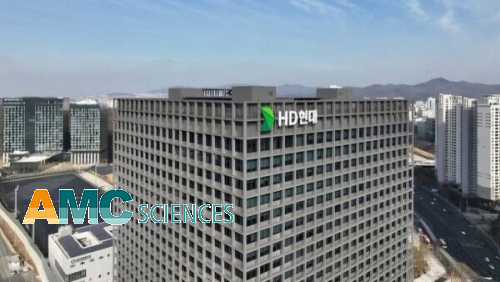HD Hyundai Group has stepped up its entry into Korea's biotech sector through its recently established subsidiary, AMC Science, assembling a team of industry-leading experts and initiating global collaborations to drive innovative drug development.

HD Hyundai’s strategic expansion into biotechnology reflects broader trends among Korean conglomerates, including Samsung, SK, and LG, that are intensifying investments in innovative therapeutic modalities, including small molecule drugs, antibodies, and antibody-drug conjugates (ADCs).
AMC Science, founded by HD Hyundai at the end of last year with an initial capital of 27 billion won ($19.2 million), aims to focus on novel drug research leveraging expertise from Asan Medical Center (AMC). Notably, the Asan Foundation also participated by investing an additional 5 billion won.
The company recently appointed Cho Ho-sung, former Senior Vice President at Samsung Bioepis, as an outside director. Cho brings over 30 years of international pharmaceutical experience, having held significant roles at global biopharma leaders including Celgene and Bristol Myers Squibb (BMS).
At Samsung Bioepis, Cho headed the Early Research and Development division.
Cho's recruitment complements earlier strategic appointments at AMC Science. Earlier this year, the firm brought on board AMC Research Planning and Management Director Cho You-sook and Lee Gwan-sun, former President of Hanmi Pharmaceutical, as outside directors.
Internally, AMC Science is led by co-CEOs Boo Ji-hong, head of HD Hyundai Future Partners, and Park Seong-wook, President of Asan Medical Center.
Recently, AMC Science has rapidly expanded its team, actively recruiting experts in areas such as proteomics, antibody discovery, efficacy evaluation, bioinformatics, preclinical development, project management, CMC (chemistry, manufacturing, and controls), QA (quality assurance), regulatory affairs, and strategic planning. The firm plans to officially commence drug discovery research activities by 2025.
AMC Science’s pipeline currently includes several innovative drug candidates, notably AMC-1001, a targeted cancer therapy, AMC-3001, a protein-based autoimmune disease treatment, AMC-4001, targeting melanin-related pigmentation disorders, and AMC-2001, an siRNA-based treatment for age-related ocular diseases, acquired in April through a licensing agreement.
The licensing agreement for AMC-2001 with the Asan Foundation, totaling 3.3 billion won excluding royalties, involves upfront and milestone payments tied to clinical and commercial achievements. The license, granted by Asan Medical Center and the University of Ulsan, is expected to significantly accelerate the development of the novel ocular treatment.
Marking its international debut, AMC Science will participate in BIO International Convention (BIO USA), the world’s largest biotech conference, in Boston this June. The event, expected to draw around 20,000 industry professionals, provides AMC Science a pivotal opportunity to introduce its pipeline and foster global partnerships.

